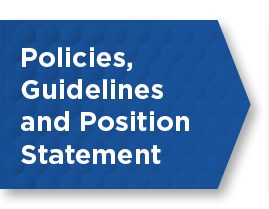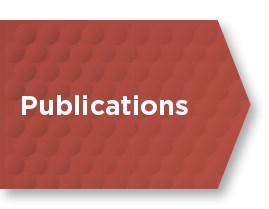
Climate Change
At the front line of health care delivery, nurses and midwives will be increasingly affected by climate change in their professional capacity.
Climate change is occurring due to human activities, in particular the large scale burning of fossil fuels for energy, which emit carbon dioxide into the atmosphere. To mitigate the effects of climate change, the international community, particularly the developed world, needs to reduce carbon dioxide emissions by transferring reliance on fossil fuels to renewable sources of energy production and reduce energy use per capita.
We need to fund the National Health and Climate Strategy. In addition, climate change must be a central feature of any broad national health strategy. This includes the recently developed National Preventive Health Strategy 2021-2030 and the National Primary Health Care 10 Year Plan currently being developed, both components of Australia’s Long Term National Health Plan.
The World Health Organization has described climate change as the defining issue for public health in the 21st century, and it poses significant immediate, medium-term and long-term risks to the health of Australians and communities around the world. According to the Lancet, ‘tackling climate change could be the greatest global health opportunity of the 21st century’.
Nurses and midwives are pivotal in leading the development of policy and influencing practices. Working in all areas of healthcare, nurses and midwives contribute to resilient health systems through research, adaptation planning, the identification of at-risk populations and participating in emergency planning and surge response. In both clinical and community health settings, nurses and midwives provide unique insight into practical sustainability and mitigation opportunities contained in energy and water efficiency, procurement, and waste management practices.
The ANMF supports action and initiatives that will address the challenges of climate change. To that end the ANMF is committed to net zero emissions by 2050.
Climate Change and Health
The ANMF recognise and acknowledge that Aboriginal and Torres Strait Islander peoples, as the traditional custodians, have cared for the land and environment for thousands of years before and hundreds of years since European settlement. The land is a link between all aspects of Aboriginal and Torres Strait Islander people’s existence; this includes spirituality, health, culture, language, family, lore and identity. Indigenous land and sea management, also referred to as 'caring for country', includes a wide range of environmental, natural resource and cultural heritage management activities.
Climate change has implications for human health. Human health and wellbeing is intrinsically connected to the quality of the natural environment. Humans are entirely dependent on a stable, habitable climate for food, water and comfortable living conditions. These staples of existence within our natural environment, are being threatened by climate change.
Increased average temperatures are contributing to more severe hot weather, storms, floods and fires. More days over 35 degrees contributes to heat stress in vulnerable groups such as the elderly and remote Indigenous communities. There is also the possible migration further south of diseases currently confined to tropical areas. Climate change poses significant threats to food and water security.
The accumulated health effects from these factors combined puts pressure on already stretched health and aged care facilities and the associated workforce. These sectors must be prepared and equipped to manage the health impacts of climate change.
Nurses, midwives and assistants in nursing are already affected both in their work and personal lives by the effects of climate change. As the largest component of the health care workforce, they are at the forefront of providing care to communities and individuals affected by climate change. Treatment of climate change-related health conditions are adding to the burden of an already stretched health care system. As professions grounded in science and as providers of health care, the nursing and midwifery professions are in a position to communicate with the public and within their workplaces about climate change and health.
Health and aged care facilities are significant contributors to climate change as large consumers of energy, water and products. They also generate huge volumes of waste.
There is much that can be done to prepare health and aged care facilities for increased demands placed on them due to climate change events, and to improve the overall environmental sustainability of the health and aged care sectors. More information about the role nurses, midwives and assistants in nursing can play in developing policy and influencing practices in their workplaces to improve energy and water efficiency, procurement, and waste management practices, can be found in the resources below.
For further information the following websites and publications may be useful:
- ANMF Position Statement: Health, environment and climate change
- ANMF Position Statement: Primary healthcare
Climate Change and Health Alliance
The ANMF is a member of the Climate and Health Alliance (CAHA). This alliance of health related organisations seeks to educate the health sector about climate change and assist health and aged care facilities to improve their environmental sustainability. CAHA communicates to governments and the wider community about climate change and health.
The ANMF partnered with CAHA for their Real, Urgent and Now (RUN) Project to understand how health practitioners engage with climate change, and the barriers to doing so, to develop resources to empower health practitioners to speak confidently about climate and health, and to bring health voices to the media to help inform the public and decision-makers.
CAHA has a range of publications including a monthly newsletter, position papers and submissions available on its website. Individual nurses, midwives and assistants in nursing can participate in CAHA activities.
For further information the following websites and publications may be useful:

Policies, Guidelines and Position Statement
Find out more
Submissions
Find out more
Resources
Find out more
